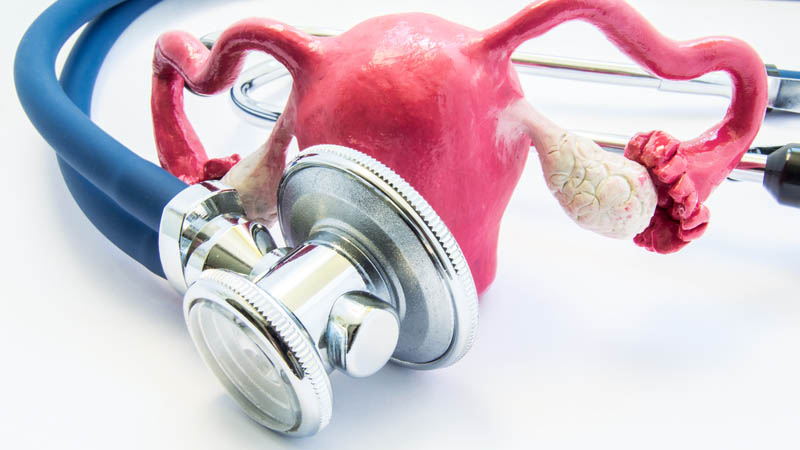Recurrent platinum-resistant and platinum-sensitive advanced epithelial ovarian cancer: an update
Anita Olejek, Bogdan Waksmański
 Affiliacja i adres do korespondencji
Affiliacja i adres do korespondencjiOvarian cancer continues to be the most lethal malignancy in women. Standard treatment in advanced ovarian cancer is primary optimal cytoreduction with extensive tumour excision combined with platinum- and taxanoid-based chemotherapy. The cornerstone of treatment is surgical reduction of tumour burden. Usually, surgical cytoreduction precedes or follows neoadjuvant therapy, i.e. after several courses of chemotherapy. The key issue in the treatment of ovarian cancer is correct determination of clinical stage of tumour. Nevertheless, still we lack reliable data based on metaanalyses, which might define optimal management of patients presenting with a recurrence of ovarian cancer. Recurrent ovarian cancer is a pathologic process or a chronic disease. We review results of clinical studies aiming at improvement of effectiveness while reducing toxicity of drugs used in systemic treatment of advanced epithelial ovarian cancer. Apart of well-known preparations, e.g. cisplatin, paclitaxel, topotecan and liposomal doxorubicin, great hopes are associated with novel compounds, e.g. gemcitabine, docetaxel, etoposide, irinotecan, vinorelbine and bevacizumab, particularly in platinum-resistant form of recurrent ovarian cancer. Further studies on novel therapeutic protocols focus on different management strategies, e.g. serial administration of drugs, or evaluation of effectiveness of a single drug used as monotherapy. Currently, the most important therapeutic aim is to improve survival of patients with recurrent ovarian cancer while preserving an acceptable quality of life.









